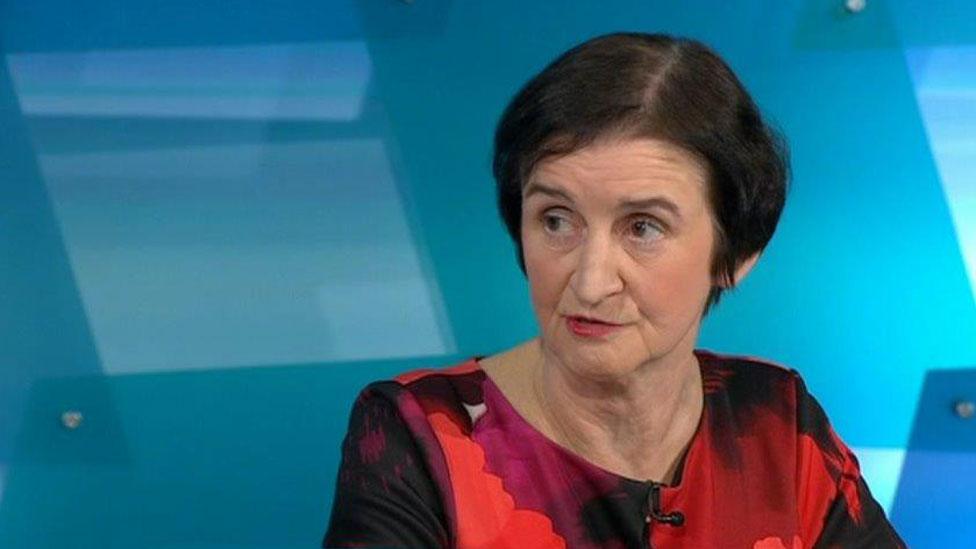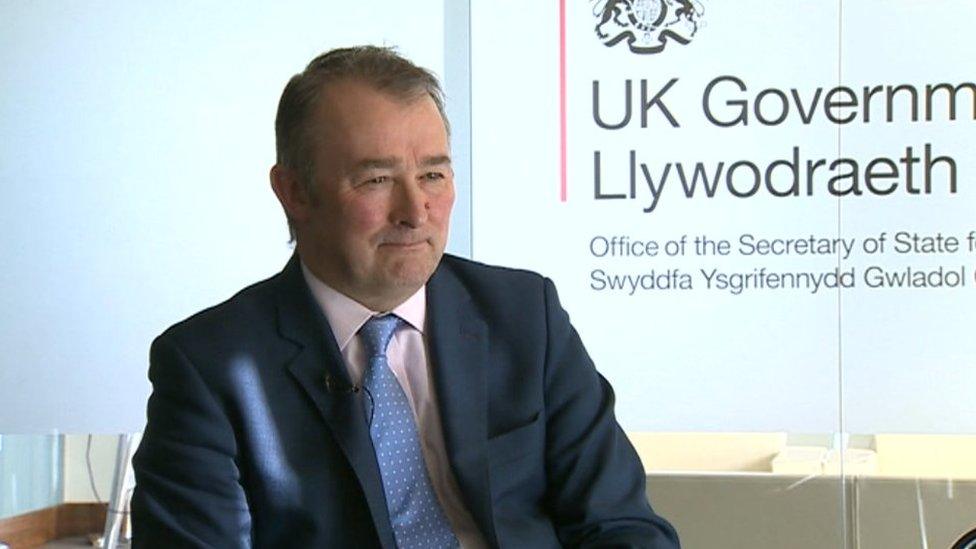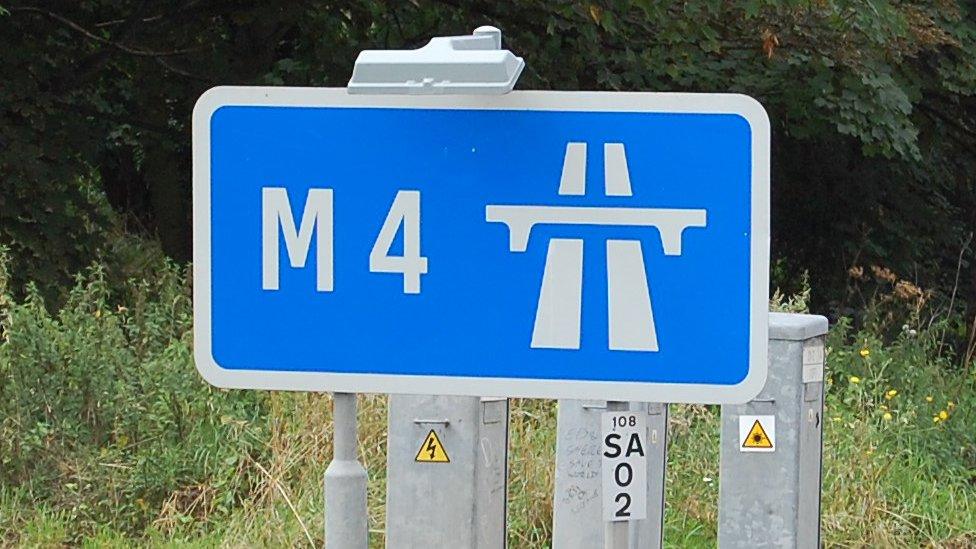Brexit: Westminster spending in Wales claims 'delusional'
- Published

UK ministers say the law will allow them to replace existing EU funding for Wales
Talk of UK ministers spending more in Wales is "delusional", Labour's shadow Welsh secretary Nia Griffith has said.
MPs have been debating a new draft law that would give UK ministers the power to spend on areas otherwise devolved.
Ms Griffith said it was "laughable to see Tory MPs talk about spending" and raised concerns this would lead to Welsh Government budget cuts in future.
But Welsh Secretary Simon Hart insisted these powers would mean "more money coming into Wales".
The Internal Market Bill would transfer powers from the EU to the UK government to spend on areas such as economic development, infrastructure and sport.
The Welsh Government has accused its UK counterpart of "stealing powers" from devolved governments.
But UK ministers said the law would allow them to replace existing EU funding programmes.
This aspect of the bill has divided Welsh MPs in the House of Commons where it has been debated this week.
Labour MP Alex Davies-Jones called it a "weak attempt at ripping up the devolution settlement", but Conservative MP Stephen Crabb said the UK government using these powers to spend in all parts of the United Kingdom "certainly isn't a controversial thing, if you're a unionist".
Plaid Cymru MP Ben Lake said UK ministers had "failed to make the most of the powers they already have" in Wales.

Nia Griffith says the move would allow UK ministers to "interfere"" in something "clearly devolved"
Ms Griffith told BBC Politics Wales there were "a fair few projects, like electrification in Wales, where we just haven't seen the Tories get on and spend the money" as previously promised.
"If you look at the devolved budget, what has actually happened over the last 10 years is the Tories have cut and cut and cut.
"This is absolutely delusional. It's laughable to see Tory MPs talking about spending when we know that's actually not what they've been doing.
"What this bill would actually allow would be for UK government ministers to interfere in something that is clearly devolved.
"It would allow the UK government to decide if they wanted to spend money on something and then, of course, what they'd turn around and do is say 'we've done that bit of spending, so we're going to take that out of the budget'.
"What would be left for us to choose how to spend in Wales would be considerably less.
"It'll be utter chaos not knowing from one year to the next what money is going to be available. Councils need to plan, people need to know what budgets are."

Simon Hart said Westminster wanted to be "more precise about targeting areas of the greatest need"
Asked whether Labour would want to have these spending powers if they were in power in Westminster, Ms Griffith said: "What we'd be talking about is respecting the devolution settlement, discussing with the Welsh Government what would be the best way forward on post-EU funding, how that would be best managed, so we'd come together about how to work it."
'We need to be guided by local opinion'
Secretary of States for Wales Mr Hart said the new UK government powers would mean more money for Wales.
"I think it's really important that in this process we of course account for local feelings, local need, local areas which need perhaps a little more additional helping hand in terms of investment," he said.
"That's where local authorities and local stakeholders come into play. What we shouldn't be doing is saying 'we know best, we're just going to put investment where we think is best' - we need to be guided by local opinion."
Details of what funds will replace EU funding and how they will be allocated have not been announced yet - but Mr Hart said areas of "greatest need" would be taken into account.
"We want to be more precise about targeting areas of the greatest need - that's very much a part of what we want to do here. I don't think there will be any danger around that."
At the bill's second reading in Parliament, Labour MPs voted against it.
When asked whether Labour would be voting for the bill at its third reading, external, Ms Griffith said: "There are fundamental problems with the bill in that it does break international law and it does roll back on the devolution settlement.
"I don't see much hope of the government accepting the sorts of amendments which would actually change that. We would need substantial change to be able to support the bill."
BBC Politics Wales is on BBC1 Wales at 10:00 BST and then on iPlayer after the broadcast.
- Published9 September 2020

- Published9 September 2020

- Published9 September 2020
